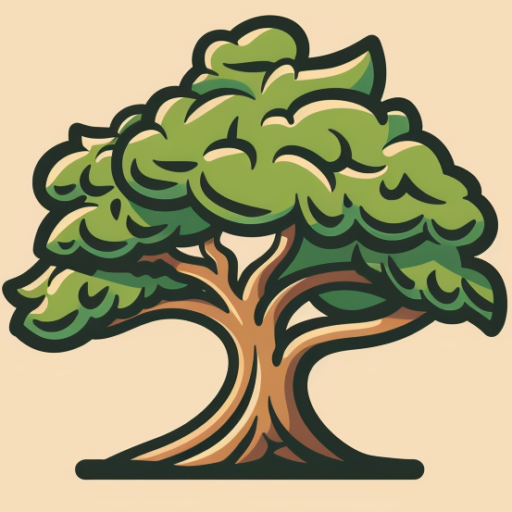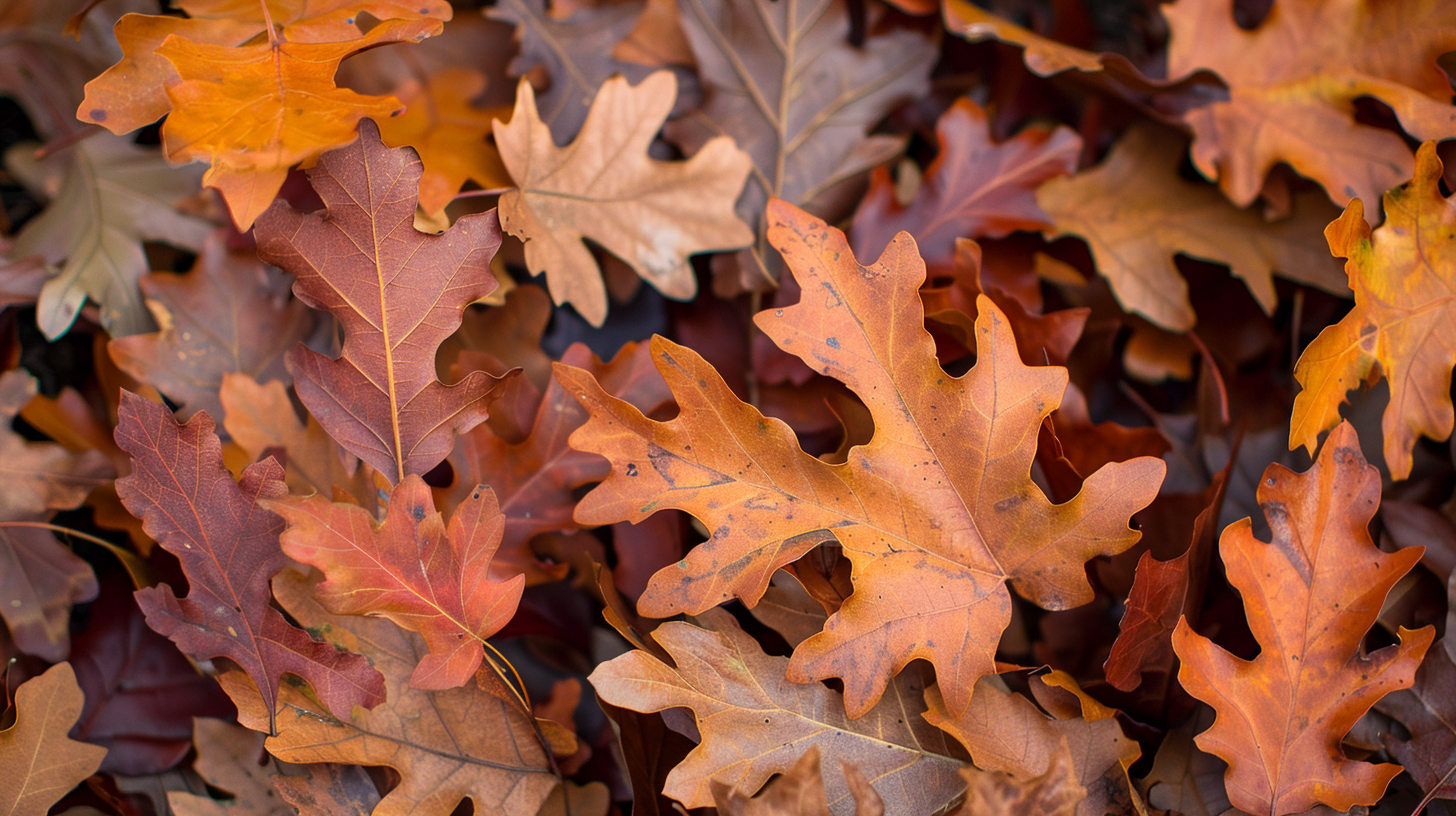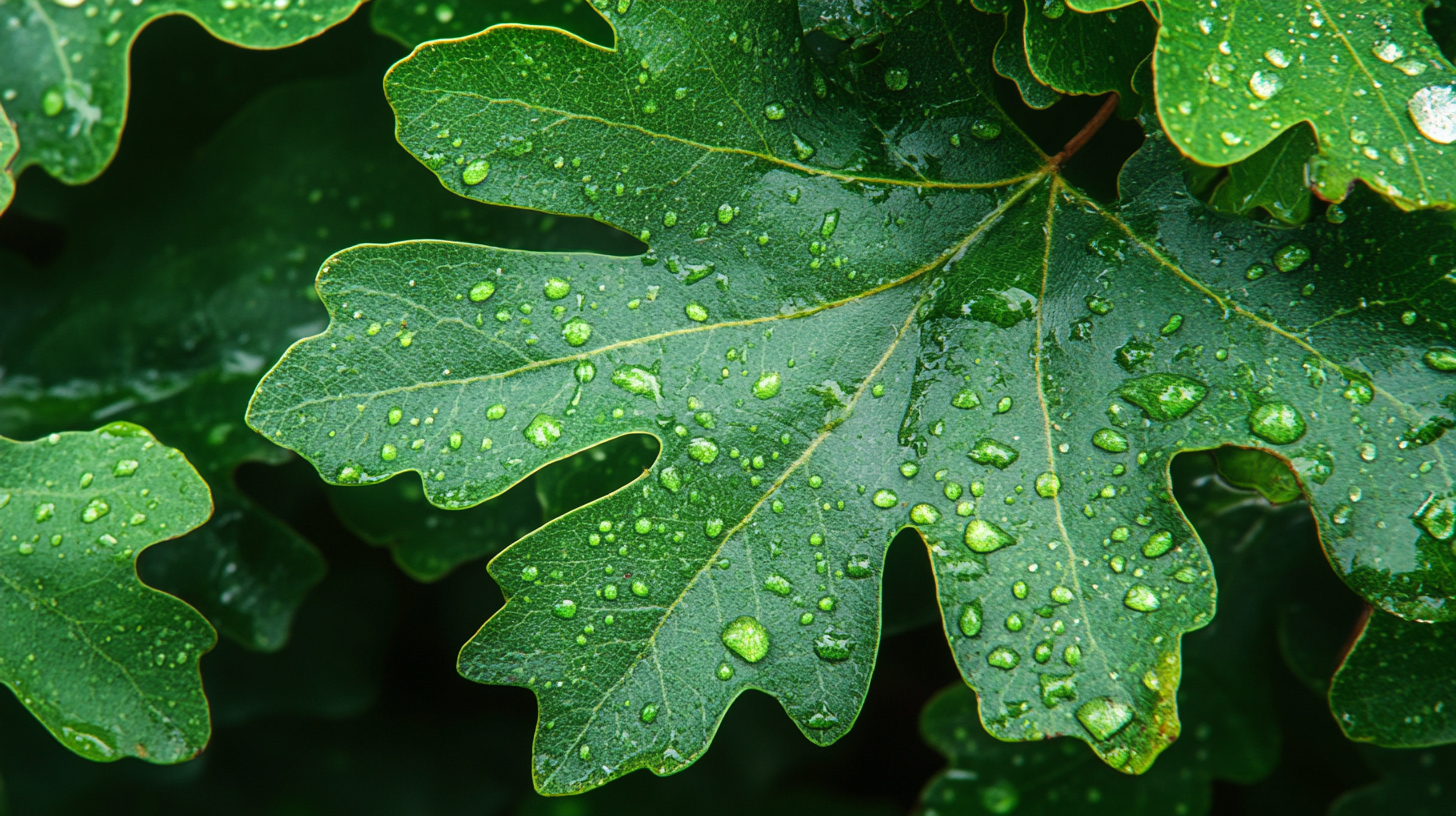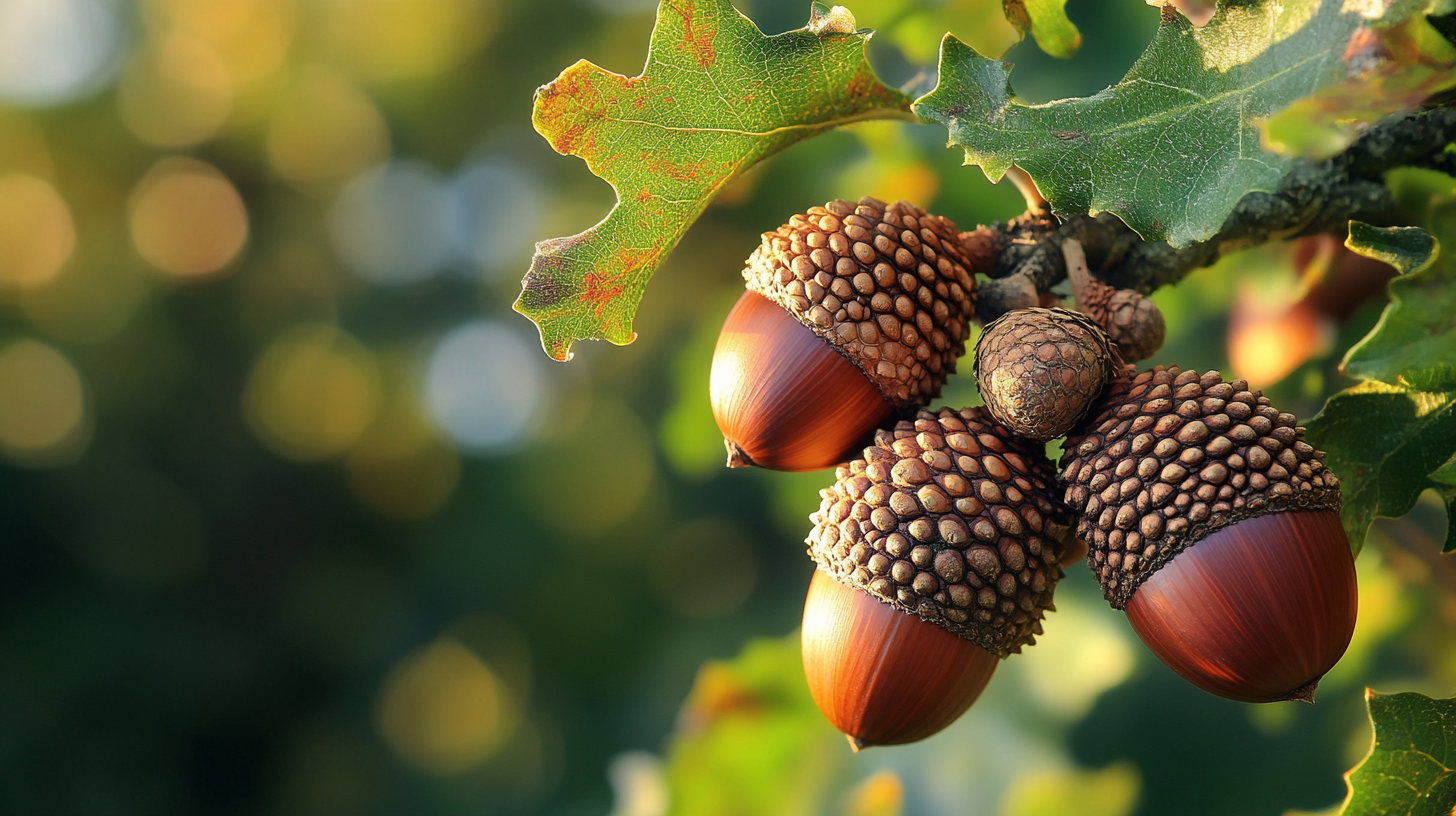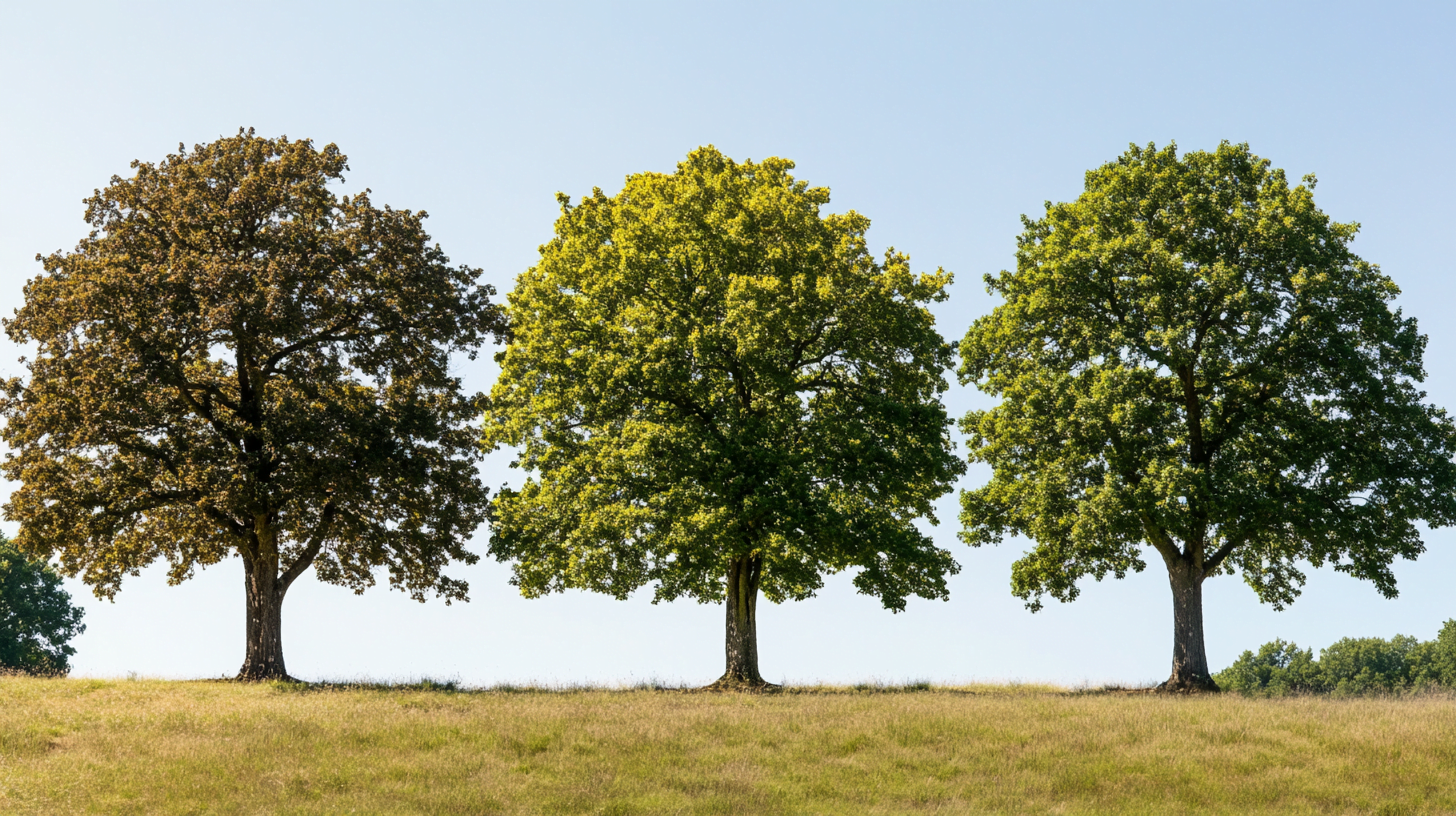Table of Contents
As gardeners, we’re always on the lookout for effective and eco-friendly ways to maintain our gardens. One question that often arises is: Can I use oak tree leaves as mulch? The answer is yes, but it’s essential to understand the pros and cons before making a decision. In this article, we’ll delve into the benefits and considerations of using oak tree leaves as mulch, as well as provide guidance on preparing them, comparing them to other mulch options, and addressing common questions and concerns.
Benefits of Using Oak Tree Leaves as Mulch
Oak tree leaves are an excellent choice for mulch due to their nutrient-rich properties. As they decompose, they release essential nutrients like nitrogen, phosphorus, and potassium into the soil, promoting healthy plant growth. Additionally, oak leaves can improve soil structure and fertility, making it more conducive to root growth and water penetration. Another significant advantage of using oak leaves as mulch is their ability to suppress weeds naturally. By blocking light and preventing weed seeds from germinating, oak leaves can reduce the need for herbicides and other chemicals. Finally, oak leaves can help with moisture retention, reducing the frequency of watering and minimizing soil erosion.
Preparing Oak Tree Leaves for Mulching
Before using oak tree leaves as mulch, it’s crucial to collect, dry, and shred them properly. Here’s a step-by-step guide to prepare oak leaves for mulching:
- Collect oak leaves: Gather leaves from your yard or a nearby park. Ensure they’re free of debris, twigs, and other contaminants.
- Dry the leaves: Spread the leaves out in a single layer on a tarp or sheet, allowing them to dry completely. This step is crucial to prevent mold and fungal growth.
- Shred the leaves: Use a lawn mower or leaf shredder to break down the leaves into smaller pieces. This helps them decompose faster and mix better with the soil.
Pros and Cons of Using Oak Tree Leaves as Mulch
While oak tree leaves offer several benefits as mulch, there are also some important considerations to keep in mind.
Advantages
- Nutrient-rich properties: Oak leaves are an excellent source of nutrients for your soil.
- Natural weed suppression: Oak leaves can reduce weed growth, minimizing the need for herbicides.
- Moisture retention: Oak leaves help retain soil moisture, reducing the need for frequent watering.
- Aesthetically pleasing: Oak leaves can add a natural, rustic touch to your garden.
Disadvantages
- Potential for acidity: Oak leaves can lower the soil pH, potentially affecting plant growth.
- Attracting pests: Oak leaves can attract pests like slugs and snails, which can damage plants.
- Slowing down soil warming: Oak leaves can insulate the soil, slowing down its warming in the spring.
Considerations for Specific Garden Types
When using oak tree leaves as mulch, it’s essential to consider the specific needs of your garden.
Vegetable Gardens
In vegetable gardens, oak leaves can affect soil pH and nutrient availability. To mitigate this, mix oak leaves with other mulch materials like straw or grass clippings. This helps balance the pH and provides a more diverse range of nutrients.
Flower Beds
In flower beds, oak leaves can enhance soil structure and fertility, promoting healthy plant growth. The aesthetic benefits of using oak leaves in flower beds are also noteworthy, adding a natural, rustic touch to your garden.
Lawns
When it comes to lawns, oak leaves can be problematic. They can attract pests and create an ideal environment for fungal growth, potentially damaging your lawn. Alternative mulch options like grass clippings or wood chips might be more suitable for lawns.
Comparing Oak Tree Leaves to Other Mulch Options
Oak tree leaves are just one of many mulch options available. Here’s a comparison with other popular mulch materials:
| Mulch Material | Benefits | Drawbacks |
|---|---|---|
| Oak Tree Leaves | Nutrient-rich, natural weed suppression, moisture retention | Potential for acidity, attracting pests, slowing down soil warming |
| Maple Leaves | Similar benefits to oak leaves, slightly sweeter pH | Can be more expensive than oak leaves |
| Pine Needles | Acidic, ideal for acid-loving plants, natural pest repellent | Can be too acidic for some plants, may not be suitable for vegetable gardens |
| Wood Chips | Aesthetically pleasing, long-lasting, easy to spread | Can be expensive, may not provide as many nutrients as oak leaves |
| Straw | Inexpensive, easy to spread, good for weed suppression | May not provide as many nutrients as oak leaves, can attract pests |
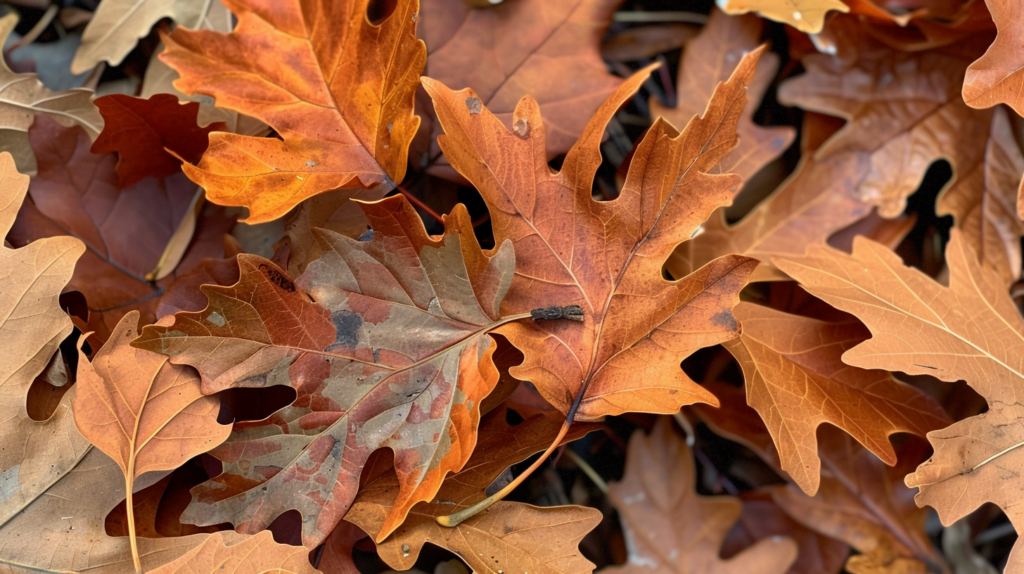
Common Questions and Concerns
Will oak leaves attract pests to my garden?
Yes, oak leaves can attract pests like slugs and snails. To minimize this risk, mix oak leaves with other mulch materials and maintain a clean garden environment.
How long does it take for oak leaves to decompose?
Oak leaves can take several months to a year to decompose, depending on factors like climate, soil type, and the size of the leaves.
Can I use oak leaves as mulch in my compost pile?
Yes, oak leaves can be added to your compost pile. They’re rich in carbon and can help balance out the nitrogen levels in your compost.
Conclusion
Using oak tree leaves as mulch can be a cost-effective and eco-friendly way to maintain your garden. By understanding the benefits and considerations of oak leaves as mulch, you can make an informed decision about whether they’re right for your garden. Remember to prepare the leaves properly, consider the specific needs of your garden, and weigh the pros and cons before making a decision. With the right approach, oak tree leaves can be a valuable addition to your gardening routine.
